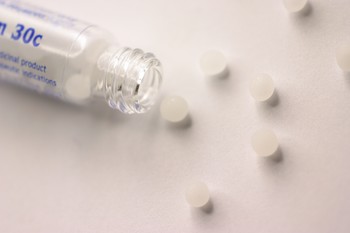 |
Battles over Generic access will wage on in 2002 - A View from the Top - health care issures bode well for the generic drugs industry - Brief Article
"The biggest opportunities for drug stores this year are increased access to generic pharmaceuticals," said Bill Nixon, president and chief executive officer of the Washington-based Generic Pharmaceutical Association, which represents generic drug manufacturers. "In the next five to seven years, branded drugs worth $35 billion in sales will come off patent." Some of that $35 billion Nixon refers to already has sparked dogfights over marketing rights. Bristol-Myers Squibb's anti-anxiety drug BuSpar (buspirone) remains the subject of lengthy litigation since its patent expired in November 2000, so unwilling is BMS to give up its hold on its lucrative drug. Generic drug makers Mylan and Watson have been leading the charge to sell buspirone. The dispute has grown increasingly tangled as close to 30 state attorneys general filed suit against BMS for keeping buspirone off pharmacy shelves, and the Federal Trade Commission asked for permission to weigh in on deliberations between BMS and its would-be generic producers. BMS also has been putting up a fight to keep Glucophage (metformin), a diabetes drug, away from generic manufacturers. The branded company's efforts to protect Glucophage went all they way to Congress, where BMS tried soliciting congressional exception to protect its Glucophage patent. Generic companies ready to produce metformin include Barr, Teva, Mylan, Watson and Andrx. Nixon noted that he believes retail pharmacy should support the association's efforts to overhaul patent regulations that keep lower-priced generics off the market. "Pharmacy needs to play the offense and have a voice in legislation that will benefit them, particularly reform of the Hatch-Waxman Act on the federal level, where we're trying to help close the loophole that allows sales monopolies to be kept on branded drugs," he said. "Not only because pharmacy's bottom line is effected, but for the well-being of their customers." Under the current Hatch-Waxman Act, branded drug companies can claim years of additional sales exclusivity for a variety of reasons. Another critical topic for retail pharmacy, according to Nixon's assessments, are the various proposals for prescription benefits for seniors, including the Medicare-endorsed discount drug card introduced by President Bush last summer. Nixon, who spends a good part of his time on Capitol Hill, said the House plans to once again bring up these topics in earnest this year in conjunction with representative elections. "Government efforts may be toward direct consumers to less-expensive distribution methods like prescription benefit managers, so pharmacists need to be especially vigilant," Nixon urged. Among the other initiatives on GPhA's agenda are taking an active role in proposing changes to the Prescription Drug Users Fee Act (the provision that allows the Food and Drug Administration to collect fees with new drug applications to defray review costs) and developing a national bioterrorism response. "The government has been in contact with us regarding our manufacturing capabilities for doxycycline, and we stand ready to work with them," Nixon said. Doxycycline is the generic form of Bayer's antibiotic Cipro, popularized by anthrax reports. Generally, the GPhA head hopes for a strong economic rebound for the country as a whole next year and predicts the generic drug industry will remain strong in 2002 and beyond. |
Copyright 2025 Webclaims-llc.com All rights reserved.
|
 The convergence of such weighty issues as national health care costs, global health care access and obligations to a growing elderly population have placed the generic drug industry in the spotlight. Retail pharmacy, which reaps some of its highest profits from dispensing generic drugs, has no choice but to stay on top of developments in this very active industry.
The convergence of such weighty issues as national health care costs, global health care access and obligations to a growing elderly population have placed the generic drug industry in the spotlight. Retail pharmacy, which reaps some of its highest profits from dispensing generic drugs, has no choice but to stay on top of developments in this very active industry.